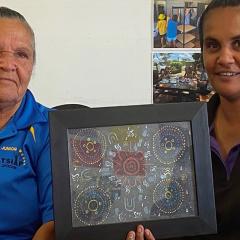Authors: Prof Karen Thorpe and Dr Sally Staton
International studies of the early childhood education and care (ECEC) programs in the USA and the UK have developed measures to assess the impact of structural features (physical environment, curriculum, staff ratios, staff qualifications) and relational features (emotional, organisational, functional elements of educator-child interactions) on children’s health, wellbeing and achievement over time. The relational environment has consistently been shown to be the most important predictor of short- and long-term child outcomes.
More recently, the E4Kids study, a QUT-led ARC Linkage Project undertaken in Queensland (led by Professor Karen Thorpe) and Victoria (led by Professor Collette Tayler), assessed the relational quality of ECEC in the Australian context, specifically the contribution that these factors make to educational outcomes indicated by NAPLAN scores. E4kids tracked 2,500 children from their ECEC settings (family day care, long day care or preschool) in urban, regional and remote Australian communities through to their NAPLAN testing at age eight. Class quality was assessed over this time through detailed observation of classroom interactions using the CLASS observation measure (Pianta, Paro, Hamre, 2008).
How does Australia compare with other nations in terms of assessed quality?
Our data showed that Australian ECEC, on average, had high-moderate emotional quality such as warm and positive emotions, responsiveness to children’s social, emotional and learning needs and regard for students' perspectives; moderate organisational quality, such as planning and transitions; but poor instructional quality, such as extending learning opportunities and direct learning of concepts. While low instructional quality appears concerning, analyses of the Queensland data provided some explanation in that the measure may not be based on appropriate expectation of the frequency of instructional interactions. When we took this into account, we found that the majority of educators (67%) are never rated as poor.
What aspects of assessed quality, if any, are associated with performance on NAPLAN?
Results showed that emotional quality in ECEC was the only domain of the ECEC environment to have a detectable effect on NAPLAN outcomes at eight years of age, controlling for family background characteristics and subsequent years of education. These effects were found across reading, writing and numeracy, though not in spelling. Emotional quality may be important in modelling self–regulation, an important precursor to effective learning; therefore, providing early childhood education environments that are responsive, respectful and warm may be one of the most important aspects for ensuring later academic success.
The E4Kids study reveals Australian ECEC programs as performing well, overall, in terms of emotional quality leading to NAPLAN outcomes. There is an opportunity to learn from and translate these results into targeted interventions for closing the gap by children at risk for developmental issues such as those from identified disadvantaged backgrounds. As an important predictor of short- and long-term child outcomes, the relational environment in these early years presents a significant opportunity for boosting educational outcomes across all children.



